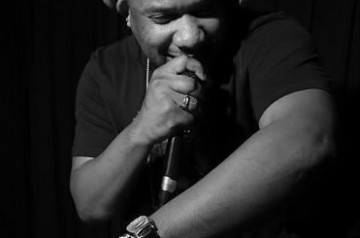Dj Norie – Da Reggae Don
Respectfully referred to as Da Reggae Don, DJ Norie was born (to Panamanian parents) and raised in Brooklyn’s East Flatbush area. Unlike his Panamanian namesake, General Manuel Noriega, music is Norie’s weaponry of choice and his mixing skills along with his energy on the microphone transform his musical selections into formidable artillery. Norie became familiar with reggae music by listening to coveted sound clash cassettes from the era’s premier Jamaican sound systems. “Listening to the cassettes of Stone Love, Kilimanjaro and other sounds I knew, I wanted to be a part of that,” Norie recalled.
Barely into his teens, Norie began working with a neighborhood sound doing odd jobs such as carrying speakers and other equipment to their various gigs around Brooklyn. When the selectors needed to take a break, Norie got the chance to display his burgeoning skills on the wheels of steel; however, all unbeknownst to his mother. “I’m sure I won’t get in trouble for saying this now, but my mom used to work nights so I’d sneak out to play at parties, and basically that is how I learned to select,” Norie laughingly discloses. “It was kind of hard in the beginning; they used to line up four or five records, tell me what to play and when I played them, people used to go crazy. So it used to seem like, yeah, I can do this, even though I was scared as s*#t. But I did it anyway and it was a good experience.”
Norie’s fears subsided with repeated stints at the turntables, and he was eventually recruited by Spectrum Disco (working with selectors Redds and Super C). As Spectrum’s popularity spread throughout Brooklyn and the greater New York area during the ‘90s, so did Norie’s renown as an intimidating selector. In the late ‘90s Super Claude, the founder of Afrique Sound Station, one of the most venerated sound systems in the New York area, recruited Norie to join the set. Alongside Afrique’s remarkable team of selectors (which included Jagga B, Crazy Richie and Super Twitch), Norie’s talents were taken to a wider audience that spanned many states and several countries. “Sometimes you have to make a move, enhance yourself and go for you, and Afrique is where my name really started from, it’s what took me to the level of traveling with the music,” Norie reflects. “I will never forget Spectrum Disco because that is where I came from but Afrique has been in the business for more than 20 years, they set the trend for ‘nuff sounds and it is a blessing to have been a part of it.”
Norie’s expertise in selecting dancehall also resonated with a mainstream listenership, as he found out when he joined forces with NYC’s own DJ Self as one of six deejays comprising a collective called Da Union, which enabled him to take dancehall into several New York City nightclubs, where it had previously been excluded. This led to a few guest appearances on New York’s Power 105.1 FM, and eventually his own Sunday night show on the station, Anything Goes – Caribbean Edition, which has contributed to his enviable status as America’s most influential radio personality for dancehall reggae. As such, Norie is usually the first to transform a core dancehall anthem into an international hit, which he did with Stephen and Damian Marley’s single “Jah Army”, featuring Buju Banton.
Aside from DJing, Norie has expanded his brand by producing and hosting concerts. His immensely popular live concert series, “Anything Goes” has brought acts like Grammy Award Winning Artist Stephen Marley to NYC. Norie also partnered on several projects with VP Records, the largest independent reggae label in the world, as well as he selects the music at each of VP’s album release parties and the label’s artists are regularly showcased at his “Anything Goes” concert series. Additionally, Norie has begun recording artists on his own dancehall riddims and has released his first independent project Da Stage Riddim. He looks to continue creating and releasing music for his fans.
Each of Norie’s endeavors is in pursuit of his ultimate goal: expanding the overall popularity of Caribbean music. “My radio show has served a lot of purposes; not only did it allow my fans to get to know me but it allowed me to give back to the music game,” Norie explains. “I feel the Caribbean culture is an untapped market and I will to continue to spread my passion for good music to anyone who loves music as much as I do.”







